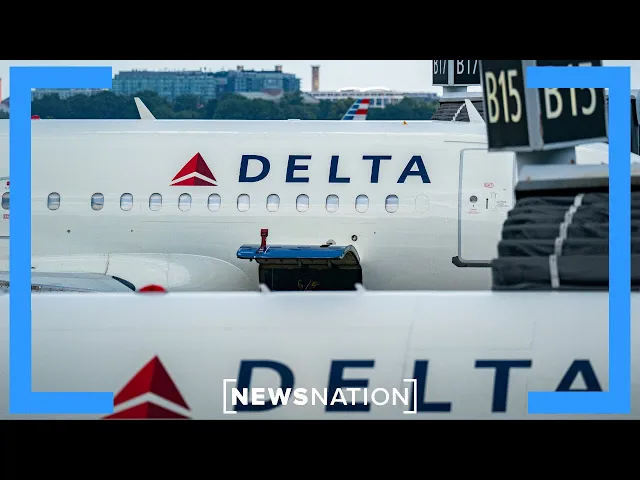Delta using AI to set ticket prices

AI reshapes how you pay for flights
In an industry where margins are razor-thin and competition fierce, Delta Air Lines has quietly implemented a technological revolution that could fundamentally transform how we all purchase airline tickets. The carrier recently confirmed it's using artificial intelligence to dynamically price its flights, moving beyond the traditional revenue management systems that have governed airfare pricing for decades. This shift signals not just a change in Delta's business strategy, but potentially a new era in how the entire airline industry approaches the delicate science of matching seats with passengers at optimal prices.
Key points from Delta's AI pricing approach:
-
Delta has implemented proprietary AI tools to make real-time pricing decisions based on vast amounts of data, moving beyond traditional revenue management systems to optimize revenue across its network.
-
Unlike conventional yield management that primarily considers historical booking patterns, Delta's AI analyzes much more extensive data sets including competitor pricing, search patterns, weather forecasts, and potentially even consumer browsing behavior.
-
The technology allows Delta to create more personalized pricing offers and respond to market conditions with unprecedented speed and precision, potentially replacing the familiar fare class structure with more dynamic options.
Beyond the algorithm: What this really means
The most significant revelation isn't that Delta is using AI—it's how this represents a fundamental shift in the power dynamics between airlines and consumers. For decades, savvy travelers have relied on predictable pricing patterns and fare rules to secure the best deals. The introduction of sophisticated AI systems means those patterns are becoming increasingly complex and personalized, making traditional deal-hunting strategies potentially obsolete.
This matters enormously in the context of broader industry trends. As more carriers inevitably follow Delta's lead, we're witnessing the beginning of a paradigm shift where pricing becomes less about rigid fare buckets and more about algorithmic assessments of what each customer might be willing to pay. The practical impact extends beyond just fluctuating prices—it could completely reshape loyalty programs, corporate travel agreements, and even the viability of budget carriers whose primary competitive advantage has been straightforward, transparent pricing.
What Delta didn't tell us
While Delta's announcements highlight the efficiency gains from AI implementation, they conveniently sidestep several critical implications. First, there's the question of transparency. Traditional revenue management systems, while complex, followed certain predictable patterns that experts could decode. AI-driven pricing creates a "black box"
Recent Videos
How To Earn MONEY With Images (No Bullsh*t)
Smart earnings from your image collection In today's digital economy, passive income streams have become increasingly accessible to creators with various skill sets. A recent YouTube video cuts through the hype to explore legitimate ways photographers, designers, and even casual smartphone users can monetize their image collections. The strategies outlined don't rely on unrealistic promises or complicated schemes—instead, they focus on established marketplaces with proven revenue potential for image creators. Key Points Stock photography platforms like Shutterstock, Adobe Stock, and Getty Images remain viable income sources when you understand their specific requirements and optimize your submissions accordingly. Specialized marketplaces focusing...
Oct 3, 2025New SHAPE SHIFTING AI Robot Is Freaking People Out
Liquid robots will change everything In the quiet labs of Carnegie Mellon University, scientists have created something that feels plucked from science fiction—a magnetic slime robot that can transform between liquid and solid states, slipping through tight spaces before reassembling on the other side. This technology, showcased in a recent YouTube video, represents a significant leap beyond traditional robotics into a realm where machines mimic not just animal movements, but their fundamental physical properties. While the internet might be buzzing with dystopian concerns about "shape-shifting terminators," the reality offers far more promising applications that could revolutionize medicine, rescue operations, and...
Oct 3, 2025How To Do Homeless AI Tiktok Trend (Tiktok Homeless AI Tutorial)
AI homeless trend raises ethical concerns In an era where social media trends evolve faster than we can comprehend them, TikTok's "homeless AI" trend has sparked both creative engagement and serious ethical questions. The trend, which involves using AI to transform ordinary photos into images depicting homelessness, has rapidly gained traction across the platform, with creators eagerly jumping on board to showcase their digital transformations. While the technical process is relatively straightforward, the implications of digitally "becoming homeless" for entertainment deserve careful consideration. The video tutorial provides a step-by-step guide on creating these AI-generated images, explaining how users can transform...
